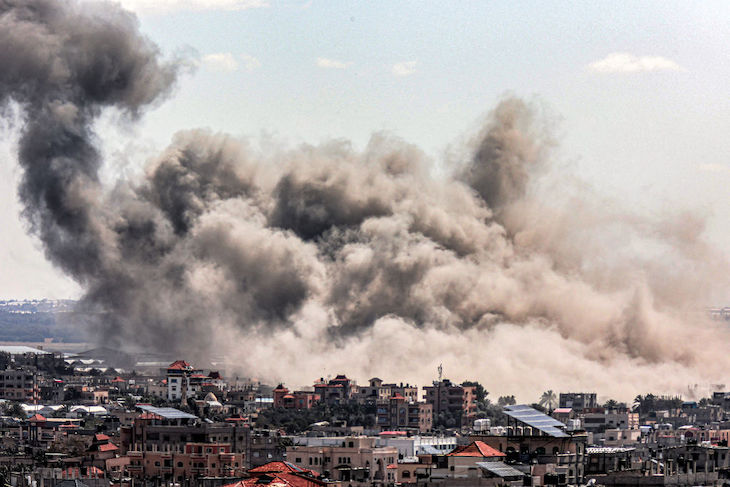The fathers, brothers and sons who are risking their lives for their country do not want to go into Rafah, on the Egyptian border of the Gaza strip. The ordinary Palestinians who hate Hamas and wish for a swift Israeli victory – and there are more of them than you think – do not want a battle in Rafah.
Already a subscriber? Log in
Subscribe for just $2 a week
Try a month of The Spectator Australia absolutely free and without commitment. Not only that but – if you choose to continue – you’ll pay just $2 a week for your first year.
- Unlimited access to spectator.com.au and app
- The weekly edition on the Spectator Australia app
- Spectator podcasts and newsletters
- Full access to spectator.co.uk
Or




















Comments
Don't miss out
Join the conversation with other Spectator Australia readers. Subscribe to leave a comment.
SUBSCRIBEAlready a subscriber? Log in